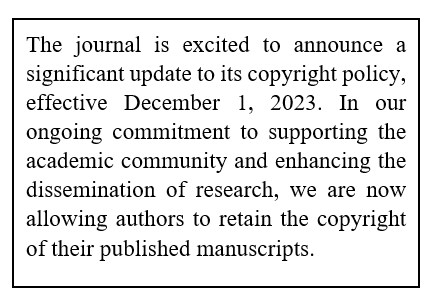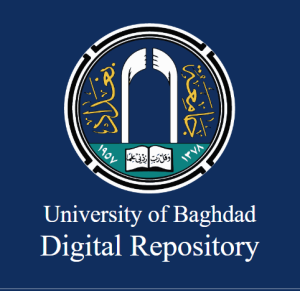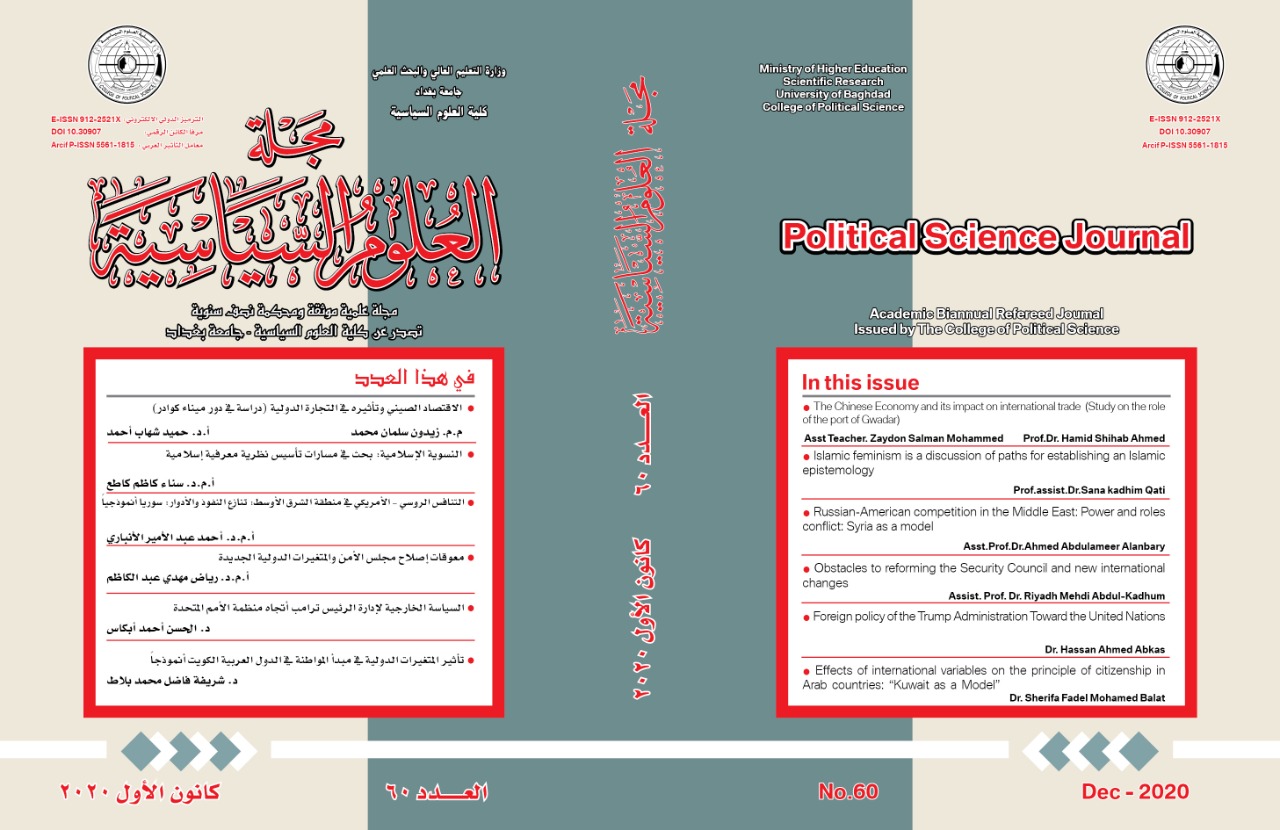Cyberspace Control Strategy to Strengthen the Intangible Aspects of Iraq’s National Security
DOI:
https://doi.org/10.30907/jcopolicy.vi69.806Keywords:
Strategy, cyberspace, national security, cyber security, Cyber warfareAbstract
This study explores a strategic approach to controlling cyberspace in order to enhance the intangible dimensions of Iraq’s national security. In the evolving global security landscape, cyberspace has emerged as a pivotal domain that reshapes deterrence concepts, warfare tactics, and the balance of power. Unlike conventional warfare, cyber conflicts are characterized by their non-physical nature, requiring advanced technological capabilities and skilled human resources. For Iraq, like many other states, the challenges in cyberspace are both horizontal and vertical, particularly in the security and capacity-building sectors. These challenges reflect the state's struggle to manage and secure its digital infrastructure effectively. The study investigates whether Iraq possesses the necessary capabilities to control its cyberspace and proposes strategies for addressing non-traditional threats within national defense frameworks.
Utilizing a descriptive and analytical methodology, the research analyzes key concepts, strategies, and policies related to cyberspace governance and connects them to Iraq’s broader national security framework. The findings reveal that cyberspace is increasingly becoming a contested domain, central to geopolitical competition, symbolic power projection, and state sovereignty. The study concludes that addressing Iraq’s cyber vulnerabilities requires high-level governmental coordination, integration of artificial intelligence in defense systems, strategic resource allocation, and inclusive policymaking that involves all stakeholders. Furthermore, a national cyberspace strategy must ensure respect for fundamental human rights while building a trusted, adaptive, and secure digital environment aligned with Iraq’s socio-political priorities.
References
المحمداوي، علي محمود. 2004 . الاشكالية السياسية للحداثة من فلسفة الذات الى فلسفة التواصل: هابرماس انموذجاً. الرباط: دار الامان.
استراتيجية الامن السيبراني العراقي. د ت. مستشارية الامن الوطني. امانة سر اللجنة الفنية العليا لأمن الاتصالات والمعلومات.
الجزيرة نت. 2024."الأمن السيبراني مفهومه وتاريخه". 19 أيلول، 2024.
https://www.aljazeera.net/encyclopedia/2024/9/19/.
العلي، علي زياد. 2018. التحديات غير المرئية للأمن الوطني العراقي. بغداد: مركز البيان للدارسات والتخطيط.
https://www.bayancenter.org/2018/06/4565.
اللجنة الدولية للصليب الاحمر. .2022"هجوم سيبراني على اللجنة الدولية: المعلومات التي نعرفها". 16 فبراير، 2022.
https://www.icrc.org/ar/document/%D9%87%.
بي بي سي. 2020. "الهجوم الالكتروني على الولايات المتحدة: بومبيو يتهم روسيا ويصف رئيسها بأنه خطر حقيقي". 19 كانون الأول، 2020.
https://www.bbc.com/arabic/world-55377723
خريسان، باسم علي. 2021. الفضاء السيبراني: مدخل ابستيمولوجي. بغداد: دار قناديل للنشر والتوزيع.
عبد القادر، ايمان. 2024. "اثر الفضاء السيبراني على الأمن القومي العربي خلال الفترة من 2011 حتى نوفمبر 2023." مجلة الاكاديمية العسكرية للدراسات العليا والاستراتيجية، عدد.3 (يناير): 106- 120.
https://doi.org/10.21608/nsas.2024.337116
قاسيمي، صافية. 2016. "الفضاء السيبراني والاغورا الالكترونية – اشكالية خلق فضاء عمومي افتراضي حسب المنظور الهابرماسي." مجلة الحكمة للدراسات الفلسفية، عدد.7 (ديسمبر): 75-60.
https://asjp.cerist.dz/en/downArticle/338/4/7/10740
List of References:
Abdel Qader, Iman. 2024. “The impact of cyberspace on Arab national security during the period from 2011 until November 2023.” Journal of the Military Academy for Postgraduate and Strategic Studies, No.3 (January): 106- 120. https://doi.org/10.21608/nsas.2024.337116 (in Arabic)
Aboud, Sattar J. 2014. “Cybercrime in Iraq”, International Journal of Scientific & Engineering Research 3, No.2 (March): 63-68. https://www.researchgate.net/publication/261722490_Cybercrime_in_Iraq/citations.
Al-Ali, Ali Ziyad. 2018. Invisible Challenges of Iraqi National Security. Baghdad: Al Bayan Center for Studies and Planning. Research Department. https://www.bayancenter.org/2018/06/4565. (in Arabic)
Al Jazeera Net. 2024. “Cybersecurity: Its Concept and History.” September 19, 2024. https://www.aljazeera.net/encyclopedia/2024/9/19/. (in Arabic)
Al Muhammadawi, Ali Mahmoud. 2004. The political problem of modernity from the philosophy of self to the philosophy of communication: Habermas as a model. Rabat: Al-Aman. (in Arabic)
Al-Jibouri, Farook. 2016. “Iraq Cyber Security Overview and announcing our Cyber Security Framework.” Cyber Code Technologies FZE. December, 2016. https://www.linkedin.com/pulse/iraq-cyber-security-overview-announcing-our-framework-al-jibouri
BBC News. 2020. “Electronic attack on the United States: Pompeo accuses Russia and describes its president as a real danger.” December 19, 2020. https://www.bbc.com/arabic/world-55377723 (in Arabic)
Blanchette, Jude. 2020. Ideological Security as National Security. Washington: Center for Strategic and International Studies.https://www.csis.org/analysis/ideological-security-national-security
Craigen, Dan Nadia, Diakun-Thibault, and Randy Purse. 2014. “Defining Cybersecurity, Technology Innovation Management Review.” October, 2014.https://timreview.ca/sites/default/files/article_PDF/Craigen_et_al_TIMReview_October2014.pdf
Costigan, Sean S, and Michael A. Hennessy. 2016. Cyber security A Generic Reference curriculum. North Atlantic Treaty Organization.https://www.nato.int/nato_static_fl2014/assets/pdf/pdf_2016_10/20161025_1610-cybersecurity-curriculum.pdf
Cyber Security Center for the Isle of Man. 2022. “National Cybersecurity Strategy 2022 – 2027.” July, 2022.https://csc.gov.im/media/qd2p4o2z/approved-national-cyber-security-strategy-1.pdf.
Douzet, Frederick. 2014. “Understanding Cyberspace with Geopolitics.” Herodote1, No.1 (January): 152-153. understanding-cyberspace-with-geopolitics.pdf.
Hoffman, Wyatt. 2019. “Is Cyber Strategy Possible?.” The Washington Quarterly 42, No. 1(Spring):131-152. Doi.org/10.1080/0163660X.2019.1593665.
Holmes, Kim R. 2015. “What is national Security?.” The Heritage Foundation. 2015.https://www.heritage.org/sites/default/files/201910/2015_IndexOfUSMilitaryStrength_What%20Is%20National%20Security.pdf
International Committee of the Red Cross. 2022. “Cyber attack on the ICRC: what we know.” February 16, 2022.https://www.icrc.org/ar/document/%D9%87%.(in Arabic)
Iraqi Cyber Security Strategy. n.d. National Security Advisory. Secretariat of the Higher Technical Committee for Communications and Information Security.https://www.itu.int/en/ITU-D/Cybersecurity/Documents/National_Strategies_Repository/00056_06_iraqi-cybersecurity-strategy.pdf (in Arabic)
International Telecommunication Union. 2021. “Strategic Engagement in Cybersecurity: Guide to Developing a National Cybersecurity Strategy.” 2021. https://ncsguide.org/wp-content/uploads/2024/05/508938E.pdf
Jain, Jitendra, and Parashu Ram Pal. 2017. “A Recent Study over Cyber Security and its Elements.” International Journal of Advanced Research in Computer Science8, No.3(March – April):791-793. https://www.researchgate.net/profile/ParashuPal/publication/321528686_A_Recent_Study_over_Cyber_Security_and_its_Elements/links/5a2a7134aca2728e05db41bf/A-Recent-Study-over-Cyber-Security-and-its-Elements.pdf.
Khreisan, Basem Ali. 2021. Cyber space. Epiphrology entrance. Baghdad: Dar Qanadeel for Publishing and Distribution. (in Arabic)
Kovacs, Lszlo. 2018. National Cyber Security as the cornerstone of national security. Land Forces Academy Review, No.2 (June): 113-120. DOI: 10.2478/raft-2018-0013.
National Cybersecurity Strategy. 2023. The White House Washington, (March). 2023. https://www.whitehouse.gov/wp-content/uploads/2023/03/National-Cybersecurity-Strategy-2023.pdf .
Qasimi, Safia. 2016. “Cyberspace and the Electronic Agora – The Problem of Creating a Virtual Public Space According to the Habermasian Perspective.” Al-Hikma Journal of Philosophical Studies, No.7 (December): 60-75. https://asjp.cerist.dz/en/downArticle/338/4/7/10740. (in Arabic)
Qi, Wei. .2005 “Cyberspace and Political Participation in Contemporary China A Preliminary Assessment Based on Two Case Studies”. Master's thesis., Lund University/Center for East and South-East Asian Studies.
Sarjito, Aris. 2024. “Enhancing National Security: Strategic Policy Development in Defense Management. Journal Pelita Nusantara2, No.1 (May(: 56 – 68. DOI: 10.59996/jurnal pelitanusantara. v2i1.524.
Uganda's Ministry of ICT and National Guidance. 2024. “National Cybersecurity Strategy 2022 – 2026.” 2024.https://dig.watch/resource/ugandan-national-cybersecurity-strategy-2022-2026.
Valdes, J.A. Tapia. 1982. “A Typology of National Security Policies.” The Yale Journal of World Public Order, No.9 (January): 10 -39. https://core.ac.uk/download/pdf/72839271.pdf
Downloads
Published
Issue
Section
License
Copyright (c) 2025 محمد كاظم عباس المعيني

This work is licensed under a Creative Commons Attribution 4.0 International License.






 ©️ 2023 The Author(s). Published by College of Political Science, University of Baghdad. This is an Open Access article distributed under the terms of the
©️ 2023 The Author(s). Published by College of Political Science, University of Baghdad. This is an Open Access article distributed under the terms of the 












